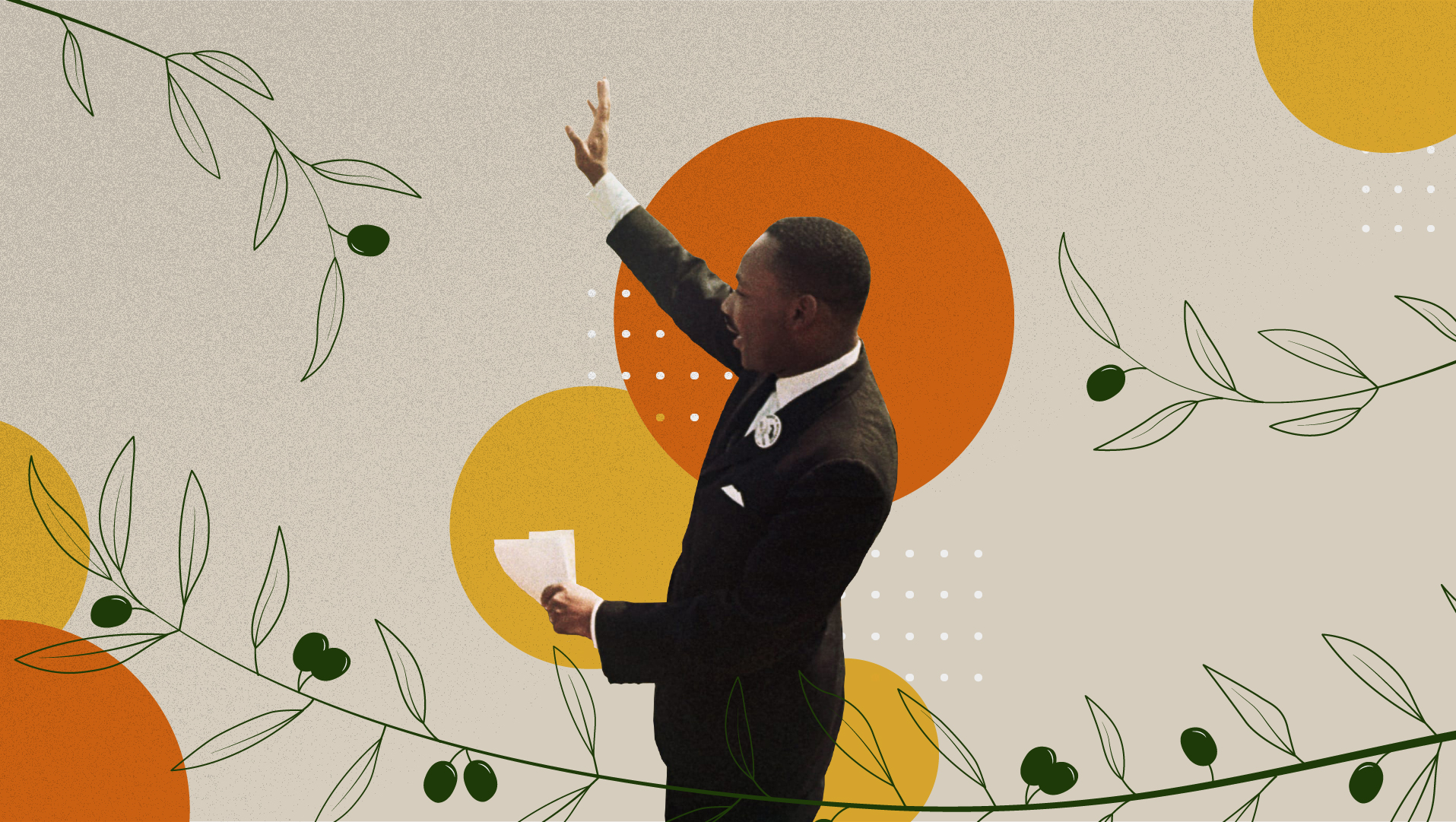
Martin Luther King Jr. Day was born from a 15-year-long campaign that began four days after Dr. King’s assassination. Because of the vision and determination of an entire community, every state in our country now collectively observes and honors Dr. King’s impact on justice and equality.
As our culture shifts, brands and businesses also follow suit. Many have begun observing this holiday through content, regularly folding it into their internal comms and social media editorial calendars. But, as more time passes from the events that shaped his life and the increase of widespread commodification, we need to be gently reminded that in order to fully celebrate the impact of Dr. King’s life, we must reflect on the true meaning of this holiday and honor it with action.
Dr. King believed that people often fall into the trap of “relativistic ethic.” He said: “Most people can’t stand up for their convictions, because the majority of people might not be doing it. See, everybody’s not doing it, so it must be wrong. And since everybody is doing it, it must be right.” To fight against these traps, Dr. King asked us all to rediscover our values — and to stand up for them.
Due to their ability to shape and inform culture and media, it is a fact that advertising and branding have significant power in changing people’s perceptions and behaviors. I’d like to believe that many of us are doing this work to inspire joy, have fun and affect the betterment of all people. Folks who work in advertising have an immense role to play in shifting culture toward equality and restorative justice. We can change how people perceive images. We can give life and meaning to the most mundane words, graphics and colors. And we can inspire the future.
So, I invite you to join me in honoring the legacy of a great thinker and activist, by learning how you can stand up for equity through your work.
1. Check your biases
In order to create truly impactful work that appeals to a target audience, we have to constantly assess our biases. By utilizing research and facts to inform your rationale, your work has a better chance of resonating with people within your target. But facts aren’t the entire picture. Building supportive, committed, reciprocal relationships and partnerships with diverse groups of people in the community are necessary to fully understand an audience’s lived experience. This is a lifelong process and a nature of the work.
2. Watch your language
We use psychology in everything we do. We know that words affect how people perceive the world and themselves. When we aren’t mindful of our language and messages, we can impact our audiences in unintended ways or create expensive consequences. When collaborating on inclusive culture and foundational brand work, we have to approach our words and descriptions with openness to all interpretations and meanings. By vetting our copy through multiple perspectives and points of view, we can make more informed choices and ensure that we are not approaching our work through a monolithic, superficial lens of the world and reality.
3. Always be willing to learn
Our work is informed by truth. But truth is not absolute or changeless, especially in the hyper-competitive world of business. What may have been true yesterday may not be true tomorrow. Approaching views with a level of detachment helps us be more open to new insights and knowledge. Here are a handful of resources to help you on your inclusivity journey:
- Behind The Dream: The Making Of The Speech That Transformed A Nation by Clarence B. Jones and Stuart Connelly
- Nonviolent Communication: A Language Of Life: Life-changing Tools For Healthy Relationships by Marshall B. Rosenberg PhD
- HubSpot’s Inclusive Language Blog
- The Conscious Style Guide
- APA Style: General Principles for Reducing Bias
Despite his brief life, the legacy of Dr. King’s remains strong through his family and the people who continue to preach and share his wisdom. May his image and words continue to inspire the next generation.
ChappellRoberts is a strategic creative and performance driven agency. Founded in 1978, we’ve been providing branding, marketing and advertising strategy to clients ranging from Major League sports franchises, to global financial services and massive regional organizations.



